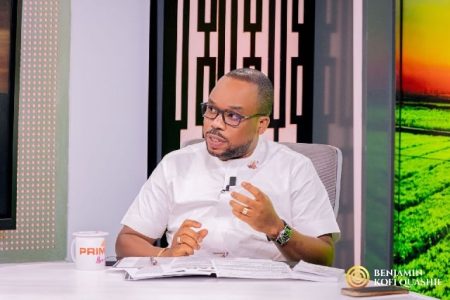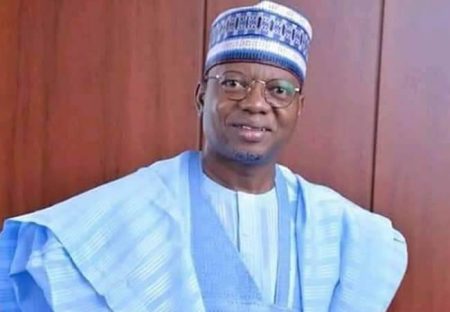Senator Adolphus Wabara, Chairman of the Peoples Democratic Party (PDP) Board of Trustees, has reiterated his praise for Governor Alex Otti of Abia State, commending his performance and emphasizing his commitment to the state’s well-being above party affiliations. This reaffirmation follows Wabara’s recent suspension by the Abia State chapter of the PDP for endorsing Otti for a second term. Speaking at the 80th birthday celebration of Dr. Godswill Okoro, a former Secretary to the State Government, Wabara underscored his primary identity as a citizen of Abia State, superseding his political allegiance to the PDP. He stressed that governance takes precedence over politics after elections, and that even the most oblivious observer can perceive the positive changes occurring in Abia under Governor Otti’s leadership. Wabara’s unwavering support for Otti, despite potential repercussions from his party, highlights his belief in prioritizing the state’s progress over partisan politics.
Wabara’s public endorsement of Otti’s governance, despite facing suspension from his own party, showcases his conviction that Otti’s performance deserves recognition. He challenged the PDP’s decision to suspend him, asserting that he cannot be silenced for speaking the truth about the evident improvements in Abia. He reiterated his appreciation for Otti’s work, focusing on the governor’s achievements rather than party lines. This stance underscores Wabara’s commitment to the welfare of Abia State, placing it above partisan considerations. He boldly proclaimed his intention to continue acknowledging Otti’s good works, highlighting his dedication to the state’s advancement regardless of political consequences.
The birthday celebration itself became a platform for acknowledging Governor Otti’s impact on Abia State. Dr. Okoro, the celebrant, commended Otti for bringing a “breath of fresh air” to the state, specifically referencing the recent flag-off of the Onuinyang-Oporoenyi Oboro Road reconstruction, a project poised to significantly benefit the agricultural sector. Okoro’s endorsement of Otti, despite previously declining to support other candidates, highlights the governor’s perceived ability to bring positive change. This sentiment echoed Wabara’s earlier remarks, emphasizing a shared recognition of Otti’s positive contributions to the state.
Governor Otti’s response to the accolades further emphasized the theme of unity and progress beyond political divides. He acknowledged his personal relationship with Dr. Okoro, describing him as a father and mentor, thus transcending the political sphere. This personal touch reinforces the idea that the focus should be on the welfare of the state and its people, rather than political affiliations. Otti reiterated his administration’s inclusive approach, emphasizing that all residents who contribute positively to Abia are considered part of the state’s fabric, irrespective of their political leanings. He championed a vision of a new Abia built on excellence, competence, equity, and capacity, encouraging a shift away from primordial sentiments and towards a united, progressive future.
Otti’s call for a return to respecting elders, a core Igbo cultural value, further emphasizes his commitment to unity and tradition. He warned against disrespecting elders, regardless of political differences, highlighting the potential consequences of such actions. This appeal underscores the importance of maintaining societal harmony and respecting established cultural norms, even amidst political discourse. Otti’s decision to attend Dr. Okoro’s birthday celebration, and his announcement of plans to celebrate the birthdays of other prominent figures from different political parties, further demonstrates his commitment to bridging political divides and fostering a culture of respect.
In conclusion, the event served as a testament to the growing recognition of Governor Otti’s positive influence on Abia State. The endorsements from both Senator Wabara, a prominent figure in the opposition party, and Dr. Okoro, a respected elder statesman, highlight the broad appeal of Otti’s governance. Their emphasis on prioritizing the state’s well-being over political differences underscores a shared desire for progress and unity. Governor Otti’s inclusive approach, his focus on meritocracy, and his respect for cultural values further reinforce his commitment to building a new Abia that transcends political divisions. The convergence of these perspectives signifies a potential shift in the political landscape of Abia State, where the focus is increasingly on effective governance and collective progress rather than partisan politics.













